It’s been a painfully long winter here in New York City, but the glinting promise of spring—and spring books—has bolstered me through these cold, hard months. Here you’ll find just over 100 titles that we’re looking forward to here at The Millions. Some we’ve already read in galley form; others we’re simply eager to dive into based on their authors or subjects. We’d hope you find your next great read among them.
We are, alas, still on hiatus, but are determined to continue bringing you our seasonal Most Anticipated previews in the interim.
—Sophia Stewart, editor
*
April
Pathemata, or, The Story of My Mouth by Maggie Nelson (Wave)
Nelson’s genre-busting Bluets is a perpetual handselling favorite at many an indie bookstore and practically lyricism incarnate. Anything billed as “something of a companion piece” to it is worth a look. If anyone can make a diary of jaw pain sing, it’s Nelson. —John H. Maher
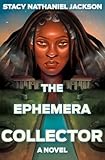 The Ephemera Collector by Stacy Nathaniel Jackson (Liveright)
The Ephemera Collector by Stacy Nathaniel Jackson (Liveright)
Jackson’s Afrofuturistic debut novel, which pays homage to Octavia Butler, follows an archivist at the Huntington Library who fights to protect her life’s work—an impossible collection of ephemera from an undersea city that has yet to be founded—following the kidnapping of the Huntington’s CEO. —Sophia M. Stewart
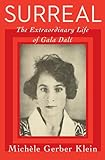 Surreal by Michèle Gerber Klein (Harper)
Surreal by Michèle Gerber Klein (Harper)
Mining a trove of newly uncovered material, Klein brings the extraordinary and enigmatic life of Gala Dalí—wife and muse of Salvador, as an art world mover and shaker who championed Surrealism—out of the shadows and into the much-deserved limelight. —SMS
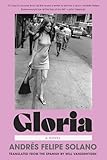 Gloria by Andrés Felipe Solano, tr. Will Vanderhyden (Counterpoint)
Gloria by Andrés Felipe Solano, tr. Will Vanderhyden (Counterpoint)
Solano’s English-language debut traces the life of centers on a young Colombian immigrant as she navigates New York City and attends a fateful concert—the 1970 performance of Argentine singer Sandro at Madison Square Garden—which echoes into the life of her son five decades later. —SMS
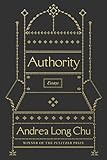 Authority by Andrea Long Chu (FSG)
Authority by Andrea Long Chu (FSG)
If Long Chu’s work for New York magazine is any indication, her newest collection of essays is sure to be equally riveting. Throughout, the Pulitzer Prize–winning critic examines everything from The Phantom of the Opera to social media, weaving a compelling narrative about how criticism, now more than ever, presents a solution to our current crises. —EMB
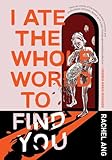 I Ate the Whole World to Find You by Rachel Ang (Drawn & Quarterly)
I Ate the Whole World to Find You by Rachel Ang (Drawn & Quarterly)
Jenny, a “twenty-something-going-on-thirty hot mess,” gropes her way toward adulthood while navigating work, romance, friendship, and the horrors of having a body in Ang’s debut collection. —SMS
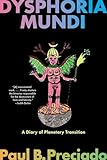 Dysphoria Mundi by Paul B. Preciado (Graywolf)
Dysphoria Mundi by Paul B. Preciado (Graywolf)
The Testo Junkie author’s so-called “mutant text” blends essay, philosophy, poetry, and autofiction to explore dysphoria as an era-defining condition that captures our current cultural, political, and social moment. —SMS
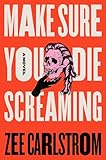 Make Sure You Die Screaming by Zee Carlstrom (Flatiron)
Make Sure You Die Screaming by Zee Carlstrom (Flatiron)
Carlstrom’s debut novel centers on a mid-bender corporate burnout who sets off on a road trip to track down their conspiracy-theorist father—and in the process wrestles with everything from queerness to capitalism. —SMS
 Searches by Vauhini Vara (Pantheon)
Searches by Vauhini Vara (Pantheon)
Building off of her brilliant 2021 essay for the Believer, Vara’s essay collection—her nonfiction debut—elegantly grapples with questions around artificial intelligence, technological progress, and human connection. —SMS
 Audition by Katie Kitamura (Riverhead)
Audition by Katie Kitamura (Riverhead)
The much anticipated follow-up to 2021’s Intimacies centers on a mysterious relationship between a well-known, middle-aged theater actress and a young man—are they friends, lovers, mother and son? Kitamura’s bifurcated novel keeps you guessing. —SMS
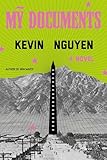 My Documents by Kevin Nguyen (One World)
My Documents by Kevin Nguyen (One World)
Nguyen’s sophomore novel follows four cousins in a United States whose government is rounding up Vietnamese Americans into internment camps. Both America’s history and its present indicate how terrifyingly close to life that premise is. To quote Nguyen quoting The Legend of Zelda as the epigraph of New Waves, his debut novel: “It’s dangerous to go alone! Take this.” —JHM
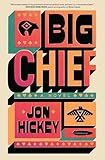 Big Chief by Jon Hickey (S&S)
Big Chief by Jon Hickey (S&S)
Hickey’s debut—hailed by David Heska Wanbli Weiden as the “great Native American political novel”—chronicles tribal politics, familial allegiances, and the quest for power on a Wisconsin reservation. —SMS
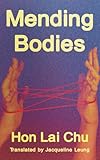 Mending Bodies by Hon Lai Chu, tr. Jacqueline Leung (Two Lines)
Mending Bodies by Hon Lai Chu, tr. Jacqueline Leung (Two Lines)
The Hong Kong writer’s dystopian latest depicts a failing city where the government has incentivizes couples to surgically “conjoin”—and a struggling grad student who is forced to grapple with the new policy. —SMS
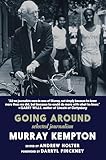 Going Around by Murray Kempton, ed. Andrew Holter (Seven Stories)
Going Around by Murray Kempton, ed. Andrew Holter (Seven Stories)
This collection, featuring a foreword by Darryl Pinckney, gathers the defining columns and essays from Kempton, the late Pulitzer Prize–winning reporter who “almost miraculously immersed himself in every region, profession, political movement, and social class,” per Benjamin Moser. —SMS
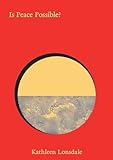 Is Peace Possible? by Kathleen Lonsdale (Marginalian Editions)
Is Peace Possible? by Kathleen Lonsdale (Marginalian Editions)
First published at the height of the Cold War in 1957, this slender volume sees the pathbreaking Quaker scientist reckoning with nuclear warfare and the role of science in shaping the future of humanity. —SMS
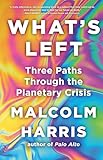 What’s Left by Malcolm Harris (Little, Brown)
What’s Left by Malcolm Harris (Little, Brown)
Historian-activist Harris follows up his barn-burner history of Palo Alto with a clear-eyed guide to what collective political action, if any, can stem the climate crisis. —SMS
 The Fact Checker by Austin Kelley (Atlantic Monthly)
The Fact Checker by Austin Kelley (Atlantic Monthly)
Admit it: we’ve all wondered what it’s like to be one of the New Yorker magazine’s famous fact checkers. This novel promises us some insights into the experience, as the reader embarks on a wild ride through New York City with one such guardian of truth and accuracy. —Claire Kirch
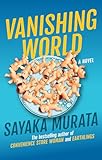 Vanishing World by Sayaka Murata, tr. Ginny Tapley Takemori (Grove)
Vanishing World by Sayaka Murata, tr. Ginny Tapley Takemori (Grove)
The latest novel from the author of the brilliantly weird Convenience Store Woman and Earthlings imagines an alternative Japan where married couples no longer have sex and all children are born by artificial insemination. —SMS
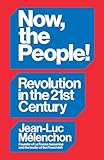 Now, the People! by Jean-Luc Mélenchon, tr. David Broder (Verso)
Now, the People! by Jean-Luc Mélenchon, tr. David Broder (Verso)
Mélenchon, a leader of the French radical left once described by the Washington Post as “France’s Bernie Sanders,” proposes a new kind of revolution against capitalism suited for our present moment—what he calls “a citizen’s revolution.” —SMS
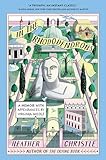 In the Rhododendrons by Heather Christle (Algonquin)
In the Rhododendrons by Heather Christle (Algonquin)
I was an ardent fan of Christle’s 2019 The Crying Book, and have a feeling her latest—a hybrid memoir that weaves personal narrative together with meditations on the life and work of Virginia Woolf—will bowl me over me yet again. —SMS
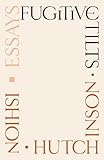 Fugitive Tilts by Ishion Hutchinson (FSG)
Fugitive Tilts by Ishion Hutchinson (FSG)
In his prose debut, poet Hutchinson offers an evocative meditation upon home, displacement, inheritance, and memory, chronicling everything from his trips to Senegal and his love of John Coltrane to the Jamaican music of his youth and paintings by Édouard Vuillard. —Eva M. Baron
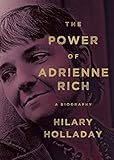 The Power of Adrienne Rich by Hilary Holladay (Princeton UP)
The Power of Adrienne Rich by Hilary Holladay (Princeton UP)
Holladay’s comprehensive biography of the trailblazing lesbian-feminist writer, thinker, and activist draws on unpublished materials and rigorous research to paint the most expansive portrait of Rich to date. —SMS
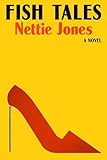 Fish Tales by Nettie Jones (FSG)
Fish Tales by Nettie Jones (FSG)
Jones’s debut novel—a portrait of a 1970s party girl whose life is tinged by drugs, sex, and violence—was first acquired by Toni Morrison at Random House and originally published in 1984, yet feels as fresh as ever. —SMS
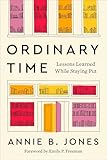 Ordinary Time by Annie B. Jones (HarperOne)
Ordinary Time by Annie B. Jones (HarperOne)
The indie bookseller’s debut book extolls the virtues of small, quiet, ordinary lives and the joy that comes with learning to love where you are, whether or not it’s where you dreamed you’d be. —SMS
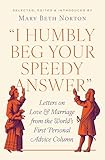 I Humbly Beg Your Speedy Answer by Mary Beth Norton (Princeton UP)
I Humbly Beg Your Speedy Answer by Mary Beth Norton (Princeton UP)
Norton’s annotated collection of questions and answers from the world’s first-ever advice column, which debuted in the 1690s, shows how eternal our preoccupations with love, sex, and romance are—and both how much and how little has changed in the last few centuries. —SMS
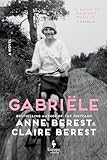 Gabriële by Anne Berest and Claire Berest, tr. Tina Kover (Europa)
Gabriële by Anne Berest and Claire Berest, tr. Tina Kover (Europa)
There’s no doubt that he author’s second foray into the English language—which follows the passionate love affair between a young French woman and a Spanish artist during the height of the Belle Époque and, later, World War I—should be just as engrossing as her hit English-language debut The Postcard. —EMB
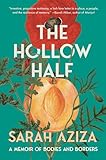 The Hollow Half by Sarah Aziza (Catapult)
The Hollow Half by Sarah Aziza (Catapult)
This timely memoir from Palestinian American journalist Aziza explores bodies, borders, and death in all its forms as she traces three generations from Gaza to the Midwest to New York City. —SMS
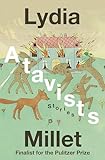 Atavists by Lydia Millet (Norton)
Atavists by Lydia Millet (Norton)
Millet’s 21st book is a collection of loosely linked stories set in Los Angeles, where a cast of recognizable characters navigates the tech-saturated, climate crisis–addled present, with varying degrees of success. —SMS
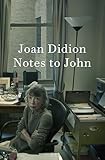 Notes to John by Joan Didion (Knopf)
Notes to John by Joan Didion (Knopf)
Ethically, I have some reservations about posthumously publishing the journal in which Didion chronicled her therapy sessions, but as a forever fan and student of her work, I can’t say I’m not looking forward to reading this new material. —SMS
 When the Wolf Comes Home by Nat Cassidy (Nightfire)
When the Wolf Comes Home by Nat Cassidy (Nightfire)
Cassidy’s title will be familiar to fans of the music of the Mountain Goats, whose songwriter, John Darnielle, has a talent for telling horror stories himself. In the case of the lyric evoked here, the terror is an abusive father coming home. Cassidy’s novel takes that fear to the extreme. —JHM
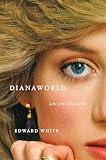 Dianaworld by Edward White (Norton)
Dianaworld by Edward White (Norton)
Princess Diana was killed in a car accident in Paris more than a quarter of a century ago and still, people the world over remain fascinated by her. White’s ruminations on the life and times of Princess Diana examine her impact upon popular culture then and now, and I am so here for this. —CK
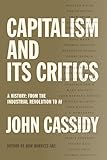 Capitalism and Its Critics by John Cassidy (FSG)
Capitalism and Its Critics by John Cassidy (FSG)
One of the great chroniclers of how money works turns his mind to the system itself. If anyone can sum up the tumultuous and knotty history of the dominant economic system of our era in a brisk 600-and-change pages, it’s Cassidy. —JHM
 Strangers in the Land by Michael Luo (Doubleday)
Strangers in the Land by Michael Luo (Doubleday)
Luo’s narrative history of Chinese immigrants in America documents a century-long struggle marked by exclusion, violence, and extraordinary resilience which proves essential to understanding the formation of American identity. —SMS
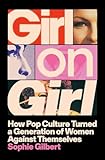 Girl on Girl by Sophie Gilbert (Penguin)
Girl on Girl by Sophie Gilbert (Penguin)
Gilbert is one of my favorite writers and thinkers, particularly on the subjects of gender and womanhood—and her debut book, which dissects three decades of pop culture through a feminist lens, is sure to be one of the standouts of the year. —SMS
*
May
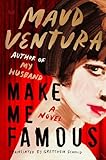 Make Me Famous by Maud Ventura, tr. Gretchen Schmid (HarperVia)
Make Me Famous by Maud Ventura, tr. Gretchen Schmid (HarperVia)
As the stateside appetite for French literature grows, Ventura’s latest should provide ample satiation. The novel explores ambition and obsession via Cléo, the French-American daughter of two academics whose relentless pursuit of fame within the music industry leads to shocking twists and revelations. —EMB
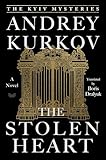 The Stolen Heart by Andrey Kurkov, tr. Boris Dralyuk (HarperVia)
The Stolen Heart by Andrey Kurkov, tr. Boris Dralyuk (HarperVia)
Kurkov returns with a follow-up to The Silver Bone (one of PW’s best books of 2024!), in which Samson Kolechko must rescue his kidnapped fiancée while investigating the illegal sale of meat in 1920s Kyiv. —EMB
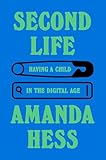 Second Life by Amanda Hess (Doubleday)
Second Life by Amanda Hess (Doubleday)
The New York Times culture critic’s debut is a candid chronicle of pregnancy, parenting, and paranoia in the page of social media, deriving humor and insights from her own internet-aggravated anxieties over her unborn child. —SMS
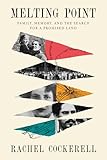 Melting Point by Rachel Rockerell (FSG)
Melting Point by Rachel Rockerell (FSG)
Rockerell’s genre-busting family memoir uses only primary sources—letters, diaries, memoirs, newspaper articles, and interviews—to tell the story of a group of Russian Jews whose search for a new homeland in the early 1900s brought them to, of all places, Galveston, Texas. —SMS
 The Painted Room by Inger Christensen, tr. Denise Newman (New Directions)
The Painted Room by Inger Christensen, tr. Denise Newman (New Directions)
A three-part literary novel of murder mystery, political intrigue, and Italian Renaissance frescoes—all with a dash of high fantasy? Sounds like the triptych of a lifetime. —JHM
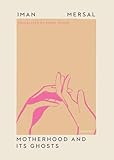 Motherhood and Its Ghosts by Iman Mersal, tr. Robin Moger (Transit)
Motherhood and Its Ghosts by Iman Mersal, tr. Robin Moger (Transit)
What does it mean to be a mother, and is there any way to convey those facts with fidelity? The latest entry in Transit’s Undelivered Lectures series is a meditation on identity, motherhood, and love, complete with archival photographs, journal entries, and writings that have informed Mersal’s practice and perspective. —EMB
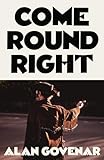 Come Round Right by Alan Govenar (Deep Vellum)
Come Round Right by Alan Govenar (Deep Vellum)
Set in 1971, this hitchhiking journey follows 18-year-old Aaron Berg as he reckons with a sexual assault he and his new girlfriend survived in Canada five months earlier. The novel winds through Appalachia, charts America’s midcentury cultural upheavals, and plumbs the perennial allure of acceptance. —EMB
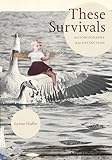 These Survivals by Lynne Huffer (Duke UP)
These Survivals by Lynne Huffer (Duke UP)
Wildly experimental and interdisciplinary, Huffer’s latest examines ethical living in the environmental ruin of the Anthropocene (a term that, she says, “sags from overuse”). Through collage, poetry, multimedia work, and memoir, Huffer balances a philosopher’s gravity—she is best known for her three-book treatment of Foucault’s ethics of eros—with a poet’s sense of play. —Jonathan Frey
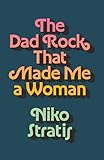 The Dad Rock That Made Me a Woman by Niko Stratis (University of Texas)
The Dad Rock That Made Me a Woman by Niko Stratis (University of Texas)
Stratis’s memoir-in-essays, the latest entry in UT Press’s American Music Series, is a coming-of-age story from a distinctly working-class trans perspective which pays homage to the music that saved its author’s life. —SMS
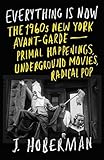 Everything Is Now by J. Hoberman (Verso)
Everything Is Now by J. Hoberman (Verso)
Back in the 1960s, New York City was a haven for the avant-garde, whether it was in the shape of subcultural movements like fluxus and guerrilla theater or venues like coffeehouses, bars, and lofts. Hoberman’s cultural history is a thorough account of the New York underground, complete with rich, minute details about what the city once was. —EMB
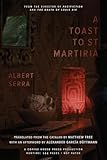 A Toast to St Martirià by Albert Serra, tr. Matthew Tree (Coffee House)
A Toast to St Martirià by Albert Serra, tr. Matthew Tree (Coffee House)
Billed as the memoir of the acclaimed and adventurous Catalan filmmaker Serra that was composed of a wholly improvised speech at a film festival that seemingly doesn’t exist named for a saint that also appears nonexistent, what exactly this book is remains a mystery. But odds are that whatever that may be will be interesting. —JHM
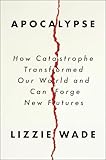 Apocalypse by Lizzie Wade (Harper)
Apocalypse by Lizzie Wade (Harper)
Covid. Trump. Climate change. Natural disasters. The hits keep coming—and it’s not the first time. Wade’s book traces various catastrophes that have befallen human beings stretching back thousands of years, proving that those who came before us survived apocalypses and we will survive what’s being thrown at us too. —CK
 The Living and the Rest by José Eduardo Agualusa, tr. Daniel Hahn (Archipelago)
The Living and the Rest by José Eduardo Agualusa, tr. Daniel Hahn (Archipelago)
What do you get when you mix a literary festival, an island off the coast of East Africa, and cyclone season? A storm of stories. —JHM
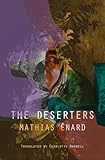 The Deserters by Mathias Énard, tr. Charlotte Mandell (New Directions)
The Deserters by Mathias Énard, tr. Charlotte Mandell (New Directions)
From the winner of the Prix Goncourt comes an ambitious novel that intertwines the stories of a soldier emerging from the Mediterranean wilderness during an unspecified war and a scientific conference taking place on September 11, 2001, aboard a small cruise ship. —EMB
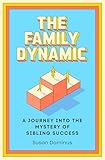 The Family Dynamic by Susan Dominus (Crown)
The Family Dynamic by Susan Dominus (Crown)
Dominus, a staff writer at the New York Times magazine, profiles cadres of high-achieving siblings (among them Lauren Groff!) in a quest to understand the familial conditions that lay the groundwork for success. —SMS
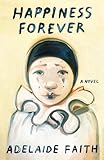 Happiness Forever by Adelaide Faith (FSG)
Happiness Forever by Adelaide Faith (FSG)
Faith’s debut novel follows a veterinary nurse named Sylvie whose ardent love for her therapist gives meaning to what she considers to be a small life—until that therapist starts to prepare Sylvie for the end of their time together. —SMS
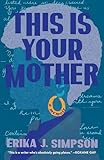 This Is Your Mother by Erika J. Simpson (Scribner)
This Is Your Mother by Erika J. Simpson (Scribner)
In her debut memoir, Simpson reflects on her complicated relationship with her equally complicated mother, the daughter of sharecroppers who did what it took to survive and is now dying. —SMS
 Little Bosses Everywhere by Bridget Read (Crown)
Little Bosses Everywhere by Bridget Read (Crown)
Most of us are familiar with multilevel marketing schemes at this point, but Read’s debut offers an even more incisive and sprawling account of the MLM phenomenon. The New York journalist considers how brands like Amway, Mary Kay, and Herbalife have devastated some of America’s most vulnerable populations, while also illuminating how MLMs strengthen the forces of capitalism. —EMB
 Sleep by Honor Jones (Riverhead)
Sleep by Honor Jones (Riverhead)
This dazzling novel examines what it means for parents to exist inside two families simultaneously—the one they’re born into, and the one that they create. When Margaret, a newly divorced young mother, returns to the home in which she was raised with her two daughters, she must reckon with her own childhood as well as its lingering secrets. —EMB
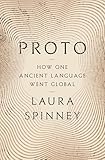 Proto by Laura Spinney (Bloomsbury)
Proto by Laura Spinney (Bloomsbury)
Ancient Greek and Latin can’t hold a candle to Proto-Indo-European as far as scope of influence is concerned. The latest from journalist Spinney aims to show just how great the impact of this little-remembered language still is. —JHM
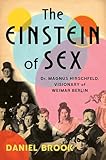 The Einstein of Sex by Daniel Brook (Norton)
The Einstein of Sex by Daniel Brook (Norton)
German-Jewish sexologist and queer rights activist Magnus Hirschfeld, best known for his rejection of gender binaries and theory of “sexual relativity,” finally gets his due in Brook’s biography. —SMS
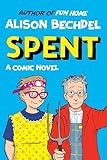 Spent by Alison Bechdel (Mariner)
Spent by Alison Bechdel (Mariner)
Bechdel skewers her own commercial success—and her trouble adapting to it—in her latest, an autofictional graphic novel that finds her lightly fictionalized alter ego raging against capitalism but too distracted to do anything about it. —SMS
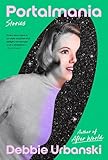 Portalmania by Debbie Urbanski (S&S)
Portalmania by Debbie Urbanski (S&S)
Urbanski’s short story collection surveys sci-fi, fantasy, horror, and realism to explore the allure of portals and the infinite possibilities they represent. —SMS
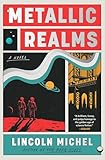 Metallic Realms by Lincoln Michel (Atria)
Metallic Realms by Lincoln Michel (Atria)
Michel’s work has long taken a calculated approach to probing the porosity of genre, and his sophomore novel is no exception. You’ve simply gotta hand it to someone whose story concept alone makes you wonder what a sci-fi epic collectively written by Joshua Cohen, Robert Heinlein, and Jonathan Lethem over Slack might look like. —JHM
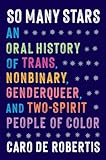 So Many Stars ed. Caro de Robertis (Algonquin)
So Many Stars ed. Caro de Robertis (Algonquin)
It’s tough to be BIPOC, queer, trans, or nonbinary in the current political climate, but this oral history affirms that queer people of color have a long and proud history in the United States and beyond. —CK
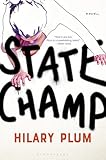 State Champ by Hilary Plum (Bloomsbury)
State Champ by Hilary Plum (Bloomsbury)
When a “heartbeat law” criminalizes most abortions statewide, an abortion clinic receptionist stages a hunger-strike at her boarded-up workplace in protest—and unexpectedly mobilizes the people around her. —SMS
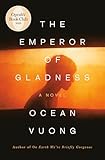 The Emperor of Gladness by Ocean Vuong (Penguin)
The Emperor of Gladness by Ocean Vuong (Penguin)
Though originally a poet, Vuong’s 2019 prose debut, On Earth We’re Briefly Gorgeous, proved his immense command over fiction. His newest novel, which chronicles the budding friendship between a troubled young man and an 82-year-old Lithuanian woman, should be equally captivating, lyrical, and singular. —EMB
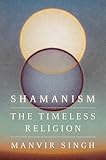 Shamanism by Manvir Singh (Knopf)
Shamanism by Manvir Singh (Knopf)
Singh traces the evolution of shamanism—which he sees as a natural human response to the uncertainty of the world, reflective of our desire for ritual and curiosity about the supernatural—from the Paleolithic era through the 20th century. —SMS
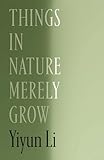 Things in Nature Merely Grow by Yiyun Li (FSG)
Things in Nature Merely Grow by Yiyun Li (FSG)
Following her short story collection Wednesday’s Child, which was a finalist for the Pulitzer Prize last year, Li returns with a devastating memoir about the loss of her two teenage sons, James and Vincent, to suicide and her journey toward acceptance in the face of grief. —EMB
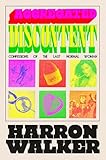 Aggregated Discontent by Harron Walker (Random House)
Aggregated Discontent by Harron Walker (Random House)
Walker is one of the sharpest writers around, and her debut essay collection about 21st century womanhood—its perils, indignities, and occasional joys—is sure to be a candid and keen-eyed dissection of the way women live today. —SMS
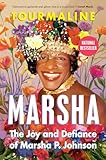 Marsha by Tourmaline (Tiny Reparations)
Marsha by Tourmaline (Tiny Reparations)
Legendary Black trans activist Marsha P. Johnson is considered to be the first person to have thrown a brick during the Stonewall Uprising in 1969. Her story needs to be told, especially when LGBTQ+ people are once again being targeted and marginalized. —CK
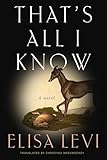 That’s All I Know by Elisa Levi, tr. Christina MacSweeney (Graywolf)
That’s All I Know by Elisa Levi, tr. Christina MacSweeney (Graywolf)
Written as a sustained monologue, this ambitious and unusual novel follows 19-year-old Little Lea and her life in a rural town at the edge of the forest. Over a shared joint with a stranger, Little Lea spins a tale of loss, desire, and conspiracies, creating an idiosyncratic, voice-driven atmosphere that is sure to interest fans of Graywolf’s other translations. —EMB
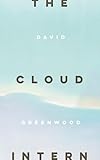 The Cloud Intern by David Greenwood (Under the BQE)
The Cloud Intern by David Greenwood (Under the BQE)
One of two inaugural titles from the the new Brooklyn-based press Under the BQE, Greenwood’s novel imagines a near-future where a tech company cofounder searches for connection in the alienating world he helped create. —SMS
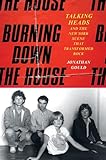 Burning Down the House by Jonathan Gould (Mariner)
Burning Down the House by Jonathan Gould (Mariner)
Music biographer Gould tells the definitive story of the Talking Heads and the gritty New York City scene that birthed them in this overdue account, out just in time for the 50th anniversary of the band’s founding. —SMS
 Freelance by Kevin Kearney (Rejection Letters)
Freelance by Kevin Kearney (Rejection Letters)
I love Kearney’s writing, and I’m so excited to read his latest novel, which centers on a young rideshare driver and asks big questions about labor, technology, and what we owe to our employers. —SMS
*
June
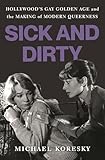 Sick and Dirty by Michael Koresky (Bloomsbury)
Sick and Dirty by Michael Koresky (Bloomsbury)
Koresky’s history surveys how queerness still made its way onscreen, behind the camera, and between the lines during the censorious Hays Code era, which lasted from the 1930s to the 1960s, examining the work of Lillian Hellman, Vincent Minnelli, Alfred Hitchcock, and more. —SMS
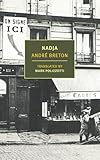 Nadja by André Breton, tr. Mark Polizzotti (NYRB)
Nadja by André Breton, tr. Mark Polizzotti (NYRB)
This surrealist classic novel brings back memories. I read it in a college French literature course many years ago, and loved the romance between two rather absurd characters who could only have lived in Paris in the early 20th century. —CK
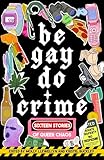 Be Gay, Do Crime ed. Molly Llewellyn and Kristel Buckley (Dzanc)
Be Gay, Do Crime ed. Molly Llewellyn and Kristel Buckley (Dzanc)
In these “sixteen stories of queer chaos,” authors Myriam Gurba, Alissa Nutting, and many more imagine queer characters who turn to crime as a means of survival, protest, retribution—or simply by accident. —SMS
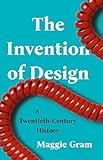 The Invention of Design by Maggie Gram (Basic)
The Invention of Design by Maggie Gram (Basic)
Design permeates nearly everything we do and everywhere we go. This fact is at the core of Gram’s cultural history, which explores design’s enduring appeal as both an economic and utopian tool throughout the 20th century. —EMB
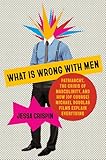 What Is Wrong with Men by Jessa Crispin (Pantheon)
What Is Wrong with Men by Jessa Crispin (Pantheon)
Feminist cultural critic Crispin turns to Michael Douglas movies to get to the root of the so-called crisis of masculinity and the anxieties around women, money, and power that are helping fuel it. —SMS
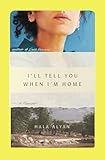 I’ll Tell You When I’m Home by Hala Alyan (Avid Reader)
I’ll Tell You When I’m Home by Hala Alyan (Avid Reader)
The acclaimed Palestinian American poet, novelist, and clinical psychologist adds a memoir to her body of work with this meditation on motherhood via surrogacy and the legacy of the displaced. —JHM
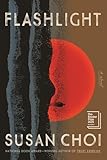 Flashlight by Susan Choi (FSG)
Flashlight by Susan Choi (FSG)
The National Book Award winner’s latest novel follows a woman as she makes sense of a mysterious tragedy—the disappearance of her father—and the geopolitics of her family, whose ties to America, Korea, and Japan are impossible to untangle. —SMS
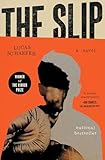 The Slip by Lucas Schaefer (S&S)
The Slip by Lucas Schaefer (S&S)
Boxing novels are having a moment right now, and this newest addition should also be a knockout. Schaefer’s debut follows two Texas teenagers, one of whom vanishes a decade later. In so doing, the author weaves an unflinching narrative about race, sex, and, of course, the fights that unfold inside the ring. —EMB
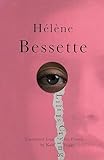 Lili Is Crying by Hélène Bessette, tr. Kate Briggs (New Directions)
Lili Is Crying by Hélène Bessette, tr. Kate Briggs (New Directions)
Throughout her life, this midcentury French author published 13 novels, but none of them, until now, have been translated into English. Lili Is Crying, lauded upon its initial French publication in 1953, mines the fraught relationship between Lili and her mother Charlotte, complete with tight, experimental prose that unearths the startling nuance of both characters. —EMB
 Clam Down by Anelise Chen (One World)
Clam Down by Anelise Chen (One World)
Chen’s genre-defying memoir turns her mother’s innocent typo—an exhortation to “clam down”—into an investigation of her own “clam genealogy”—that is, the family history and forces that led her to retreat into her shell following a divorce—as well as what we can learn from those most cloistered of sea creatures. —SMS
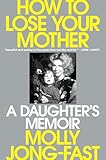 How to Lose Your Mother by Molly Jong-Fast (Viking)
How to Lose Your Mother by Molly Jong-Fast (Viking)
Jong-Fast’s intimate memoir reflects on her unconventional upbringing and intense yet elusive relationship with her mother, the acclaimed author Erica Jong, in the face of Jong’s dementia diagnosis. —EMB
 The Catch by Yrsa Daley-Ward (Liveright)
The Catch by Yrsa Daley-Ward (Liveright)
The inaugural novel in Liveright’s Well-Read Black Girls series follows estranged twin sisters who are stunned one day when they meet a version of their mother, who vanished when they were infants, that appears to have lived a full, childless life—and soon burrows her way into their lives as well. —SMS
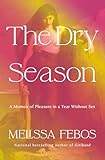 The Dry Season by Melissa Febos (Knopf)
The Dry Season by Melissa Febos (Knopf)
The master memoirist returns with an account of what she learned about sex, pleasure, and solitude from a year of celibacy. With Febos, you’re always in good hands. —SMS
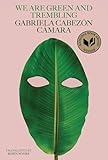 We Are Green and Trembling by Gabriela Cabezón Cámara, tr. Robin Myers (New Directions)
We Are Green and Trembling by Gabriela Cabezón Cámara, tr. Robin Myers (New Directions)
I first encountered Cábezon Cámara by way of her International Booker Prize–shortlisted novel The Adventures of China Iron, and have been eager to read more of her ever since. Her latest, a “queer baroque satire” of the Basque nun and explorer Antonio de Erauso, sounds promising. —SMS
 Endling by Maria Reva (Doubleday)
Endling by Maria Reva (Doubleday)
On the eve of Russian invasion and against the backdrop of Ukraine’s prosperous “Romance Tours,” in which Western bachelors visit in search of compliant wives, three women set off on a cross-country road trip in an effort to secure a last-ditch chance at procreation for Lefty: bachelor, snail, and last of his species. In this Saundersian tangle, it is unclear which is the metaphor and which is the ground, but there is a non-zero chance that this debut novel from the Ukrainian-born, Canadian-raised author of Good Citizens Need Not Fear might contain a key to navigating our incomprehensible present. —JF
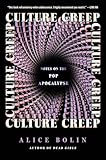 Culture Creep by Alice Bolin (Mariner)
Culture Creep by Alice Bolin (Mariner)
What do diet tracking apps, Animal Crossing, and Silicon Valley titans have in common? According to Alice Bolin, they’re all symptoms of the ongoing “pop apocalypse.” Bolin’s newest collection mines the intersection of technology, culture, and feminism to make sense of the vicissitudes of modern existence. —EMB
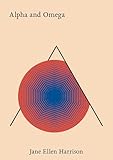 Alpha and Omega by Jane Ellen Harrison (Marginalian)
Alpha and Omega by Jane Ellen Harrison (Marginalian)
The new imprint of McNally Editions led by cultural critic Maria Popova brings back an acclaimed early 20th century classicist and linguist’s 110-year-old collection of essays on consciousness, faith, love, reason, science—you know, the light stuff. —JHM
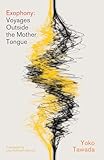 Exophony by Yoko Tawada, tr. Lisa Hofmann-Kuroda (New Directions)
Exophony by Yoko Tawada, tr. Lisa Hofmann-Kuroda (New Directions)
Tawada’s first book of essays to be translated into English fittingly centers on her lifelong fascination with the possibilities of “cross-hybridizing languages” as well as writing and existing outside one’s mother tongue. —SMS
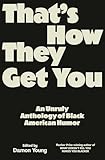 That’s How They Get You ed. Damon Young (Pantheon)
That’s How They Get You ed. Damon Young (Pantheon)
A pioneering collection of Black humor, edited by the Thurber-winning Young and featuring an all-star roster of contributors including Hanif Abdurraqib, Wyatt Cenac, Kiese Laymon, Deesha Philyaw, and Roy Wood Jr.—need I say more? —SMS
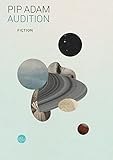 Audition by Pip Adam (Coffee House)
Audition by Pip Adam (Coffee House)
Three giants stuck in a spaceship must keep speaking to keep the ship moving—and themselves from growing bigger than their confines. It sounds about as strange, and intriguing, a parabolic vessel for the exploration of imprisonment and power as they come. —JHM
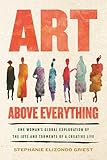 Art Above Everything by Stephanie Elizondo Griest (Beacon)
Art Above Everything by Stephanie Elizondo Griest (Beacon)
Passion, especially when directed toward a creative pursuit, can be all-encompassing. In this book, Griest explores this timeless conundrum through queer, BIPOC, and women artists around the world, all of whom consider their own relationship to ambition, redemption, and creativity. —EMB
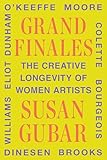 Grand Finales by Susan Gubar (Norton)
Grand Finales by Susan Gubar (Norton)
My most anticipated summer read looks at nine women artists—including George Eliot, Georgia O’Keeffe, Louise Bourgeois, and Gwendolyn Brooks—who flourished creatively in the final chapters of their lives. —SMS
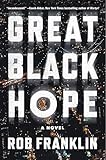 Great Black Hope by Rob Franklin (Summit)
Great Black Hope by Rob Franklin (Summit)
This debut novel was one of the books being buzzed about at a recent booksellers conference, and I’m intrigued by the concept: a Black man from an elite family who spirals downward into New York City’s underworld, where he’s defined more by his race than class. —CK
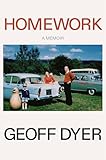 Homework by Geoff Dyer (FSG)
Homework by Geoff Dyer (FSG)
Dyer has written countless works of fiction and nonfiction, but this memoir may be one of his most intimate. Charting his youth through the lens of schooling, exams, and, of course, the titular homework, this is a generous and deeply personal portrait of England in the 1960s and 70s. —EMB
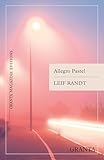
Allegro Pastel by Leif Randt, tr. Peter Kuras (Granta)
The latest novel in the Granta Magazine Editions series traces the long-distance relationship of two millennials—a cult author and web designer—as they navigate life, love, and work (not to mention the encroachment of technology and climate change) in contemporary Germany. —SMS
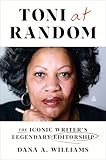 Toni at Random by Dana A. Williams (Amistad)
Toni at Random by Dana A. Williams (Amistad)
What fascinates me most about Toni Morrison wasn’t just a literary genius but an editorial one: during her tenure at Random House she shepherded the work of such authors as Toni Cade Bambara and Lucille Clifton. Morrison herself asked that Dana A. Williams tell the story of this facet of her career—and even gave the book its unsurprisingly winning title. —SMS
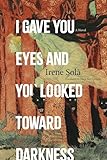 I Gave You Eyes and You Looked Toward Darkness by Irene Solà, tr. Mara Faye Lethem (Graywolf)
I Gave You Eyes and You Looked Toward Darkness by Irene Solà, tr. Mara Faye Lethem (Graywolf)
Leave aside the title like the piercing gaze of truth itself. A multigenerational saga of Catalonia told by gossiping ghosts readying an otherworldly welcome party for a descendant on her deathbed? Now that’s a concept. —JHM
 The Stone Door by Leonora Carrington (NYRB)
The Stone Door by Leonora Carrington (NYRB)
Carrington’s long unavailable novel, written at the end of WWII and first published in 1977, has everything: love, adventure, the Zodiac, Mesopotamia, a mad Hungarian King, and, of course, the titular great stone door that leads to the unknown. —SMS
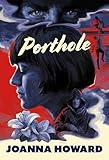 Porthole by Joanna Howard (McSweeney’s)
Porthole by Joanna Howard (McSweeney’s)
Howard’s latest novel traces the total meltdown of an art-house film director who may or may not be responsible for the on-set death of her leading man, muse, and lover. —SMS
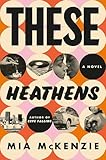 These Heathens by Mia McKenzie (Random House)
These Heathens by Mia McKenzie (Random House)
The two-time Lambda Award winner’s latest novel, set in 1960s Georgia, follows a pious small-town teenager as she travels to Atlanta to get an abortion only to discover the burgeoning civil rights movement and the secret lives of queer Black folks. —SMS
 Vegas: A Memoir of a Dark Season by John Gregory Dunne (McNally)
Vegas: A Memoir of a Dark Season by John Gregory Dunne (McNally)
Dunne’s work often languishes in the shadow of his famous spouse, but this under-appreciated and long out of print memoir shows the writer—mordant, deadpan, and mid–nervous breakdown—at the height of his powers. —SMS
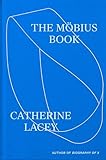 The Möbius Book by Catherine Lacey (FSG)
The Möbius Book by Catherine Lacey (FSG)
Lacey’s latest is as ambitious and genre-agnostic as anything she’s ever written, which is saying something. Part novel, part memoir, what might have become a mere separation narrative in another’s hands instead interrogates through its own form whether anything begins or ends in the first place. —JHM
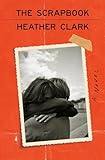 The Scrapbook by Heather Clark (Pantheon)
The Scrapbook by Heather Clark (Pantheon)
The Sylvia Plath biographer makes her fiction debut with a story—inspired by Clark’s own discovery of her grandfather’s WWII scrapbook—about the illusions of first love and the burden of family history. —SMS
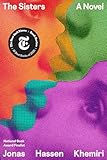 The Sisters by Jonas Hassen Khemiri (FSG)
The Sisters by Jonas Hassen Khemiri (FSG)
Originally written in English, a first for the author, Khemiri later rewrote this sweeping family saga in his native Swedish, which was published in 2023 and has since become a bestseller in Sweden. Now, the novel officially reappears in English, offering an indelible portrait of three Tunisian-Swedish sisters and the possible curse that follows them. —EMB
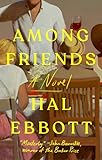 Among Friends by Hal Ebbott (Riverhead)
Among Friends by Hal Ebbott (Riverhead)
Ebbott’s debut novel follows two wealthy couples who get together for a fateful weekend in the country—and how they navigate the harm, secrets, and life-shattering revelations that come from it. —SMS
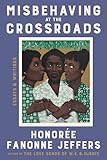 Misbehaving at the Crossroads by Honorée Fanonne Jeffers (Harper)
Misbehaving at the Crossroads by Honorée Fanonne Jeffers (Harper)
The Love Songs of W.E.B. Du Bois author makes her nonfiction debut with an essay collection that explores the emotional and historical tensions in Black women’s public lives—and her own private life. —SMS
The post The Great Spring 2025 Book Preview appeared first on The Millions.
Source : The Great Spring 2025 Book Preview












